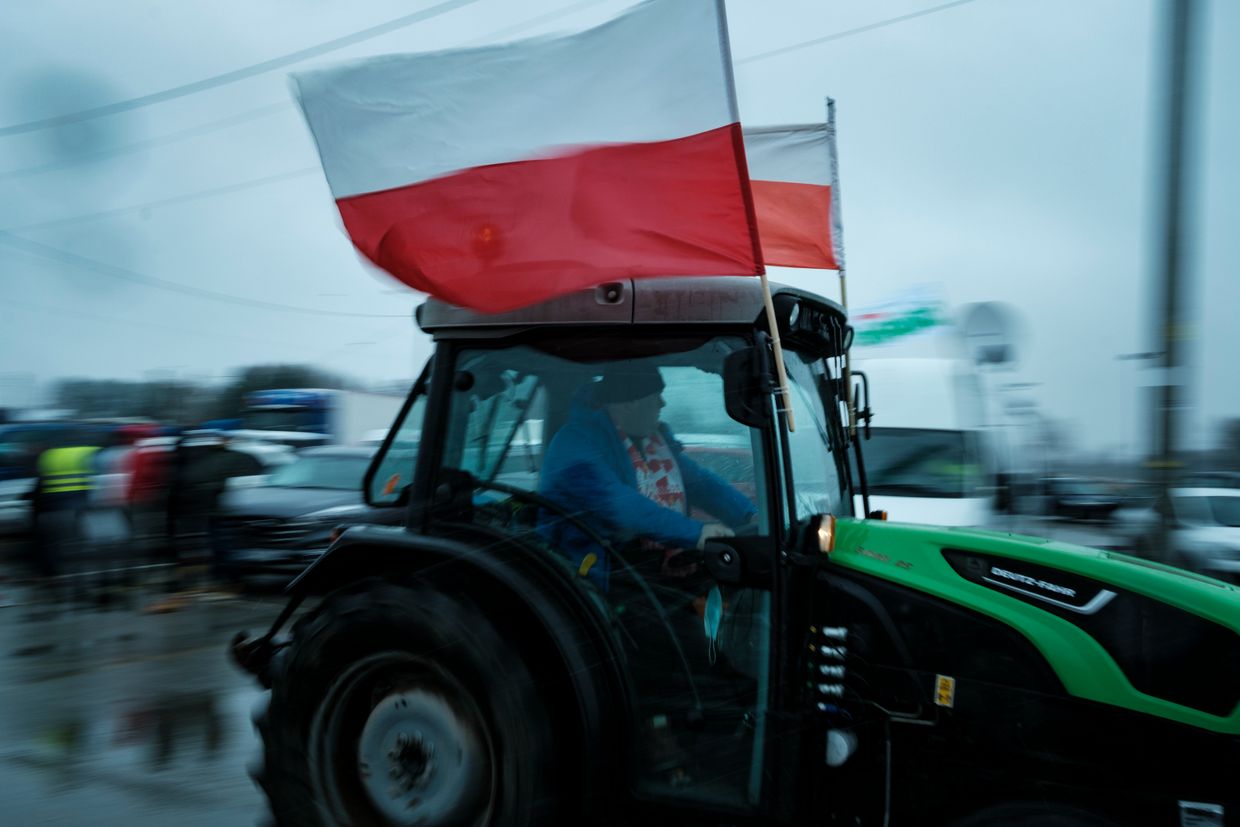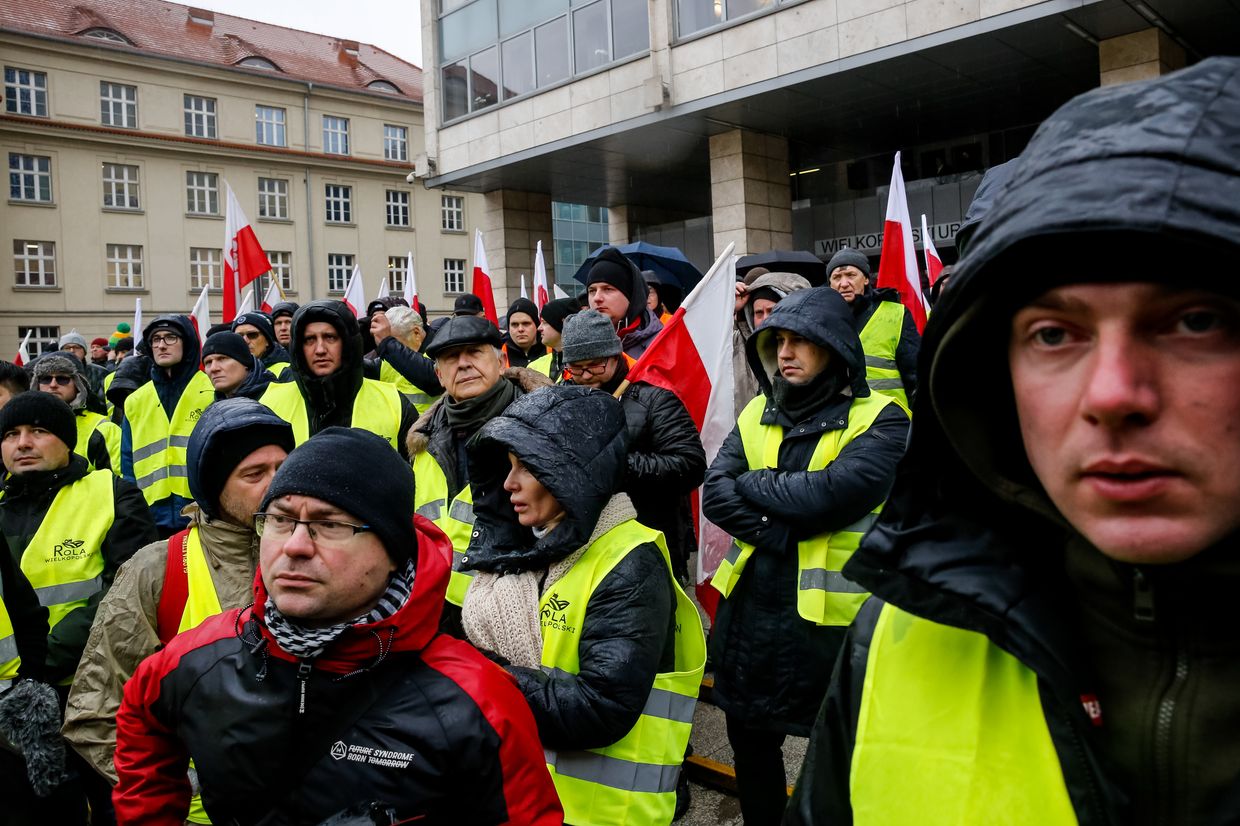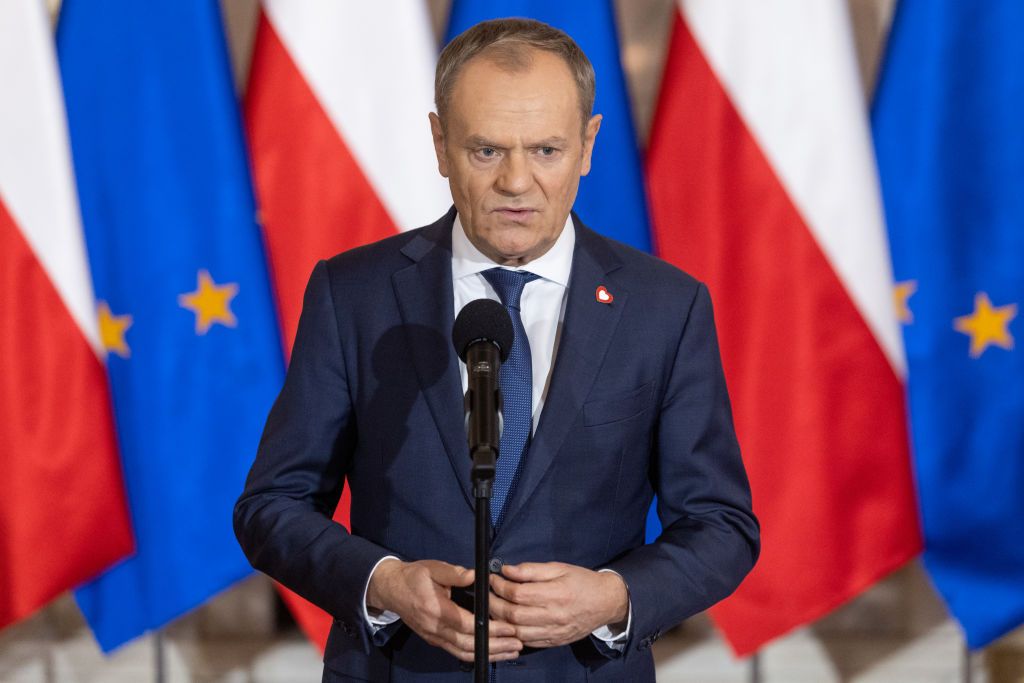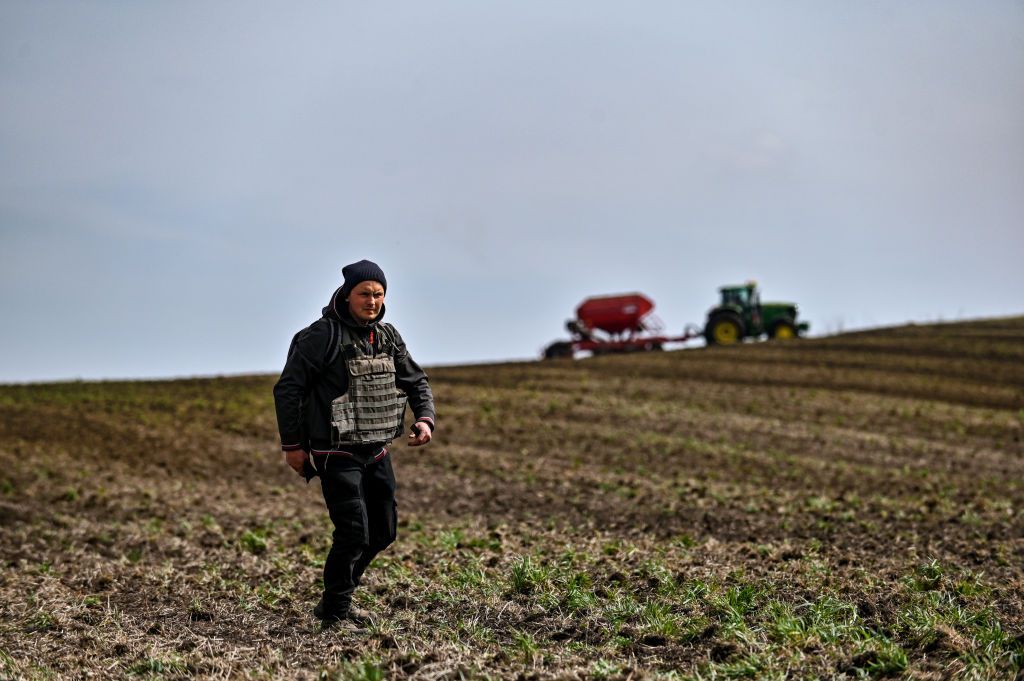Polish farmer protests heat up, threatening Polish-Ukrainian relations
Polish farmers have again taken to the border with neighboring Ukraine in their new month-long strike against EU policies and unfair competition from abroad. The Solidarity trade union announced on Feb.
9 that it would begin blocking roads and border crossings with Ukraine until March 10. The group then announced on Feb.
13 that it would block all border crossings with Ukraine on Feb.
20, escalating tensions further. Farmers across Europe have been protesting what they say is increased competition from abroad, particularly from Ukraine, as well as EU policies meant to fight climate change that imposes restrictions on farmers. The Solidarity trade group has placed the blame squarely on the Polish authorities and the European Commission for what they say is inaction.
"The passivity of the Polish authorities and declarations of cooperation with the European Commission ... regarding the import of agricultural produce and food products from Ukraine leave us with no other choice but to declare a general strike," the union said in a statement on Feb.
2. Ukraine's Agriculture Ministry confirmed to the Kyiv Independent that Kyiv and Warsaw are negotiating. However, there appears to be little end in sight over the agricultural dispute that began in April 2023.
Ukraine's agricultural sector is also concerned that the protests are fanning anti-Ukrainian sentiment in one of its biggest allies in the fight against Russia. Following the start of the 30-day blockade, the protests sparked outrage after videos surfaced on social media showing Polish protestors spilling Ukrainian grain from trucks at the Dorohusk checkpoint.
 Over 100 farmers are blocking the road with their tractors, driving very slowly, in a protest against duty-free trade with Ukraine in Grojec, Poland, on Feb.
Over 100 farmers are blocking the road with their tractors, driving very slowly, in a protest against duty-free trade with Ukraine in Grojec, Poland, on Feb.
9, 2024. (Piotr Lapinski/NurPhoto via Getty Images)
Kyiv condemned the actions and called for the perpetrators to be punished. Poland's Chelm District Prosecutor's Office launched an investigation on Feb.
12 warning that the offense could lead to five years imprisonment. Polish authorities apologized to Ukraine following the incident, but tensions are still running high as the protestors began another blockade at the Korczowa-Krakivets checkpoint on Feb.
13, bringing the total to six, according to Ukraine's State Border Guard Service. At the same time, Poland's Agricultural Ministry has also accused Ukrainian food products of being poor quality and partially defended the protestors in their apology.
"The farmers may have let their emotions get the best of them, but we should remember that they are in a very difficult economic situation. Right before the beginning of spring fieldwork, they have no money to buy fertilizers and pesticides. It is easy to understand their desperation," Poland's agriculture minister Czeslaw Siekierski said on Feb.
12. The cause of the protests is not entirely clear to the Ukrainian side. Warsaw has restricted Ukrainian food imports since April 15, 2023, and expanded the embargo on Sept.
15, 2023. In May 2023, the EU imposed restrictions that allowed Poland, Hungary, Slovakia, Romania, and Bulgaria to ban the domestic sale of Ukrainian wheat, maize, rapeseed, and sunflower seed, while still permitting the transit of these products for exports elsewhere after local farmers complained the imports were driving prices down.
 Polish farmers seen along the Aleja Niepodleglosci road in Pozna Poland on Feb.
Polish farmers seen along the Aleja Niepodleglosci road in Pozna Poland on Feb.
9, 2024 during a nationwide farmers' strike. (Dominika Zarzycka/SOPA Images/LightRocket via Getty Images)
Ukraine's grain and oil crop exports to Poland dropped significantly after the ban. In March 2023, the combined total was 277,500 metric tons which fell to 61,000 tons in April and to less than 20,000 tons in December, according to data from the Ukrainian Grain Association (UCAB).
"During the last few months there has not been much product entering through the Polish border," Head of the European Integration Committee UCAB Oleksandra Avramenko told the Kyiv Independent. "Most of the products right now are going through Constanza, in Romania, or they're trying to go through the Black Sea," she explained. The products that do enter Poland are not sold on the Polish market.
Rather they are transported to third countries. Avramenko noted that it's possible that third parties, such as buyers in Germany, could then resell the Ukrainian goods to Poland. But this is not the responsibility of Ukraine to monitor, she says.
Siekierski promised to strengthen border control and implement more inspections after conducting checks at the border on Feb.
4. "Excessive import of agricultural products from Ukraine that do not meet the production requirements applicable in the EU threatens the competitiveness of Polish agriculture," he said. Polish Prime Minister Donald Tusk warned that the dispute could spark anti-Ukrainian sentiments in Poland.
 Polish Prime Minister Donald Tusk speaks during a press conference after a government meeting in Warsaw, Poland, on Jan.
Polish Prime Minister Donald Tusk speaks during a press conference after a government meeting in Warsaw, Poland, on Jan.
3, 2024. (Foto Olimpik/NurPhoto via Getty Images)
"I do not think there is any significant conflict of opinion or interests between the (Polish) government and the protesting farmers," Tusk said during a meeting in the northern Polish town of Morag on Feb.
11. "If Ukraine still wants to be able to mobilize the entire world in its favor during its struggle against Russia, it must also respect the interests of individual members of this community," he added. Warsaw previously negotiated with protestors to end a separate blockade on Jan.
6. Siekierski pledged to meet three of the farmer's demands including corn subsidies worth one billion zloty (£251 million), increasing liquidity loans by 2.5 billion zloty (£629 million), and keeping agricultural tax at the 2023 level. Tusk kept the embargo on Ukrainian food goods but did not expand the list to include items like sugar, eggs, and poultry, as demanded by the protestors.
Avramenko is concerned that the resumption of protests plays into the hands of Poland's right-wing parties ahead of the European Parliament elections on June 6-9. Right-wing parties with anti-Ukrainian sentiments were involved in similar protests by Polish truckers in Nov.
2023. "The anti-Ukrainian narrative is very convenient for the right wing," she said.
Farmers across Europe are staging protests but Avramenko notes that only Poland is heavily targeting Ukraine. France and Spain are protesting against imports from all third countries while the majority are criticizing rising costs and the EU's bureaucratic Green Deal. Previously Romanian farmers protested against Ukrainian imports and other issues on Jan.
13, but Kyiv and Bucharest reached a deal. Romanian seed oil processors agreed to first purchase sunflower seeds from local producers and then take Ukrainian products after. "We could be doing the same with Poland," Avramenko said.
Opinion: Ukraine's Partial Credit Guarantee Fund is a win-win for farmers and banks
In the wake of land reform and the relentless challenges posed by Russia's invasion of Ukraine, Ukraine's agricultural sector faces a pivotal moment.
Small farmers, the backbone of this vital industry, grapple with the dual challenges of securing financing and overcoming the aftermath of destruction...
